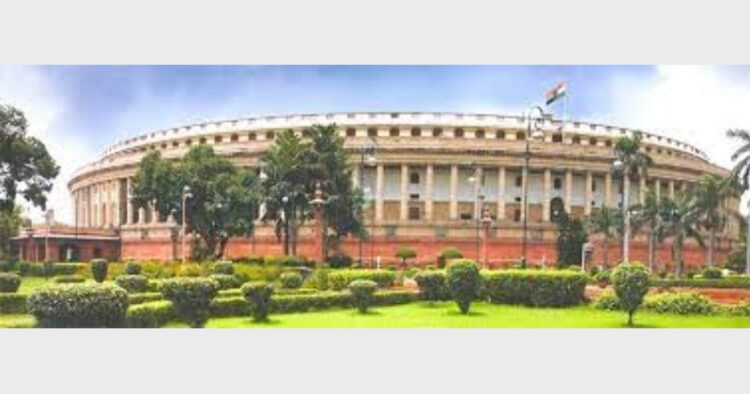Prafulla Ketkar
The Constitution can provide only the organs of State such as the Legislature, the Executive and the Judiciary. The factors on which the working of those organs of the State depends are the people and the political parties they will set up as their instruments to carry out their wishes and their politics.” –– Dr B R Ambedkar, in his last speech in Constituent Assembly on November 25, 1949
On the expected lines, the Monsoon session of Parliament is experiencing unruly scenes, not on the Covid-19 crisis or farmers’ issue, as was predicted, but on a speculative media report – called Pegasus Project. A consortium of 16 media houses published a report on July 18, just a day before the Monsoon Session of Indian Parliament was scheduled to begin. Unfortunately, instead of discussing facts and issues genuinely concerning the ordinary people, the discussion surrounds the alleged snooping, with the list of imaginary targets featuring in the database. Can we afford to wash away the entire Parliament session on such a speculative report that originated in the foreign media?
The Pegasus, product by an Israeli Company, NSO, is sold to the sovereign governments, meant to intercept phones of criminal or terror networks. In 2019, the Opposition made similar allegations about illegally accessing WhatsApp chats through the same spyware, which WhatsApp denied in the Court. The then IT Minister gave a statement in the Parliament, and the issue died down. For the same period, now new allegations are made with many ifs and buts. The so-called ‘leaked list’ is not from the NSO server as clarified by the company; the Amnesty International Lab claimed to have investigated this data, has given confusing statements over the claims. The Minister of Information and Technology has clarified that the reports have no factual basis. Forbidden Stories, the originator of this Pegasus Project, has interesting funding sources that require more scrutiny about the selected targets. Despite all this, the unparliamentary means are resorted based on the media reports that only indicate the cyber-surveillance.
Interestingly, on the same day, another issue cropped up regarding a news portal called NewsClick. Allegedly Chinese money routed through Sri Lanka in the portal having dubious links with the ultra-Left ideology. A Communist ideologue also reportedly received the money. The Enforcement Directorate also found that a part of the money was also paid to Urban Naxal Gautam Navlakha, arrested in the Elgar Parishad case. The activists, journos, lawyers associated with the notorious organisation also featured in the numbers of interests in the alleged snooping targets. Isn’t NewsClick under the scanner, involving foreign money, to destabilise democracy in Bharat, a more serious concern for the Parliament than the speculative report on snooping?
The National Human Rights Commission and the National Women’s Commission have submitted their reports on the most undemocratic ways of dealing with the Opposition parties’ cadre in West Bengal. It should have been a point of discussion considering the gravity of crimes. Instead, the culprit Mamata Banerjee Government, is playing a victim card on the Pegasus issue.
The bills that seek to provide a permanent solution for tackling air pollution in the NCR and adjoining areas and a framework for insolvency resolution of corporate debtors in distress have been listed for tabling in Lok Sabha. Human Trafficking prevention bill and Power sector reforms are also proposed for discussion. Most importantly, post-Covid economic recovery, preparations for the anticipated Third Wave and the devastating flood situation in many parts of the country are the real national concerns. Yes, misuse of cyberspace and data security are important issues, and if illegal snooping is involved, it also needs further investigation. Parliament is the best forum to discuss these genuine issues supported by facts and data. Stalling the functioning of the real agenda on hand is just a reflection of the undemocratic mindset.
@PrafullaKetkar













Comments